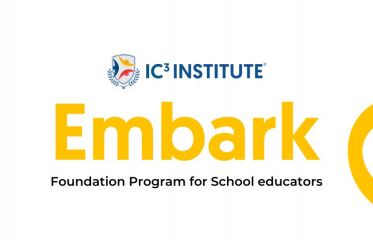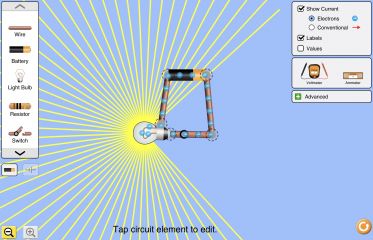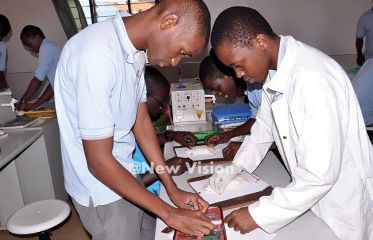
I am a

student

institution

career professional
I need help with
Career Selection & Planning
Find your best-fit career, stream, course or college through advanced assessments and expert guidance.
college applications
Get admits from your dream colleges through end-to-end applications guidance for overseas and liberal arts universities.
I am interested in
Career Development Programs
State-of-the-art career assessments, expert guidance, and more to help students plan their career paths.
Career Advancement Programs
Expert-led MUN training programs, inspirational career talks and more to help students get that added edge.
I am interested in
Getting Certified (ICCC)
Become an International Certified Career Coach through a multi-level credentialing program by Mindler & CDA (USA).
Partnering with Mindler
Expand and grow your career counselling practice by leveraging the full force of Mindler’s career guidance platform.
Ready to discover your perfect career?
Enter your email id to take the Orientation Style test for free.
CAREER COUNSELLING PROGRAMS
Class 8-9
Stream & Subject SelectionAdvanced assessment & personalised guidance to help you select the perfect stream and subjects that align you to the right careers.
Class 10-12
Career Selection & PlanningExpert guidance & 5-dimensional assessment to help you discover your perfect career and choose the right course and college.
Graduates
Career Selection & Development5-dimensional assessment & superior guidance to help you discover your perfect career and choose the best next step.
Thank you for contacting us!
One of our team members will respond in 2 working days to resolve your query. If your query is urgent, you can alternatively call our career helpline.
Ready to pave your way to your dream college?
Leave your details below and we will get in touch shortly.
COLLEGE APPLICATION PROGRAMS
Overseas Application
End-to-end overseas admissions guidance to help you build the perfect applications for your target universities.
Liberal Arts Application
Comprehensive guidance and personalised application development for admissions to Liberal Arts programs.
Thank you for contacting us!
One of our team members will respond in 2 working days to resolve your query. If your query is urgent, you can alternatively call our career helpline.
Ready to give students the best of career guidance?
Leave your details below and we will get in touch shortly.
Career Development Programs
Career Development &
Planning Ecosystem
State-of-the-art assessment & end-to-end career guidance to help students discover their perfect career.
Thank you for contacting us!
One of our team members will respond in 2 working days to resolve your query. If your query is urgent, you can alternatively call our career helpline.
Ready to give your students the added edge?
Leave your details below and we will get in touch shortly.
Career Advancement Programs
MUN Training Program
Expert-led training and comprehensive guidance sessions to help students excel at MUN conferences.
Mindler Talks
Career awareness and inspirational talks for students with professionals who have achieved success in their fields.
Thank you for contacting us!
One of our team members will respond in 2 working days to resolve your query. If your query is urgent, you can alternatively call our career helpline.
Ready to upgrade your career counselling skills?
Enter your email id to start your ICCC application.
Getting Certified (ICCC)
International Certified
Career Coach (ICCC)
A 3-month program with emphasis on global practices, experiential learning & career guidance tools.
Thank you for contacting us!
One of our team members will respond in 2 working days to resolve your query. If your query is urgent, you can alternatively call our career helpline.
Ready to grow as a counsellor?
Leave your details below and we will get in touch shortly.
Partnering with Mindler
Mindler Partner Program
World-class career assessment platform & tools to help you scale up your career counselling practice.
Thank you for contacting us!
One of our team members will respond in 2 working days to resolve your query. If your query is urgent, you can alternatively call our career helpline.
Breaking News
- Flexible Remote Work Opportunity for University Students: Earn $100–$250 Per Month ...Read More
- Ministry of Education and Sports Azerbaijan Government Scholarships For 2025-2026 Academic Year ...Read More
- Government Sponsorship Undergraduate Admission Lists 2025-26 for Makerere University ...Read More
- Ministry of Education And Sports: Egyptian Government Scholarships 2025-2026 Academic Year ...Read More
- Ground Breaker Full Scholarship for girls to study Software Engineering 2025 July Intake ...Read More
- Tony Elumelu Foundation Entrepreneurship Programme (TEEP) 2025 for young African Entrepreneurs ...Read More
- DESIGNING FUTURES 2050 International Design Competition 2025 (€15,000 prize) ...Read More
- Ground Breaker Full time Scholarship for girls to study Software Engineering 2025 Intake ...Read More
- Ministry of Education And Sports Algerian Vocational Training Scholarships for 2024-2025 AY ...Read More
- Ministry of Education and Sports Advert for the Algerian Government Scholarships for 2024-2025 ...Read More
Lecturer
Lecturers instruct students in a wide variety of academic and vocational subjects beyond the high school level. They also conduct research and publish scholarly papers and books.
Add to FavouritesAlso known as: Professor, Adjunct professor, Postsecondary Teacher, Graduate teaching assistants
Duties
Many lecturers find their jobs rewarding because they are surrounded by others who enjoy their subject. The opportunity to share their expertise with others also is appealing to many and they typically do the following:
1. Teach courses in their subject area e.g career-related subjects, such as law, nursing
2. Work with students who are studying for a degree or a certificate or certification or are taking classes to improve their knowledge or career skills
3. Develop an instructional plan (known as a course outline or syllabus) for the course(s) they teach and ensure that it meets college and department standards
4. Plan lessons and assignments
5. Work with colleagues to develop or modify the curriculum for a degree or certificate program involving a series of courses
6. Assess students' progress by grading papers, tests, and other work
7. Advise students about which classes to take and how to achieve their goals
8. Stay informed about changes and innovations in their field
9. Conduct research and experiments to advance knowledge in their field
10. Supervise graduate students who are working toward doctoral degrees
11. Publish original research and analysis in books and academic journals
12. Serve on academic and administrative committees that review and recommend policies, make budget decisions, or advise on hiring and promotions within their department
Important Qualities
Communication skills. Postsecondary teachers need to write papers, give lectures, and serve on committees. To do so effectively, they need good communication skills.
Critical-thinking skills. To challenge established theories and beliefs, conduct original research, and design experiments, postsecondary teachers need good critical-thinking skills.
Resourcefulness. Postsecondary teachers need to be able to present information in a way that students will understand. They need to adapt to the different learning styles of their students and teach students who have little or no experience with the subject.
Writing skills. Most professors publish original research and analysis. Consequently, they need to be skilled writers.
Key Knowledge Areas
Education and Training — Knowledge of principles and methods for curriculum and training design, teaching and instruction for individuals and groups, and the measurement of training effects.
Customer and Personal Service — Knowledge of principles and processes for providing customer and personal services. This includes customer needs assessment, meeting quality standards for services, and evaluation of customer satisfaction.
English Language — Knowledge of the structure and content of the English language including the meaning and spelling of words, rules of composition, and grammar.
Administration and Management — Knowledge of business and management principles involved in strategic planning, resource allocation, human resources modeling, leadership technique, production methods, and coordination of people and resources.
Public Safety and Security — Knowledge of relevant equipment, policies, procedures, and strategies to promote effective local, state, or national security operations for the protection of people, data, property, and institutions.
Psychology — Knowledge of human behavior and performance; individual differences in ability, personality, and interests; learning and motivation; psychological research methods; and the assessment and treatment of behavioral and affective disorders.
-
 32,000+ Early Educators Needed in Canada, Apply to study in Canada
As of spring 2024, over 230,000 people worked in early childhood education (ECE) in Canada.
32,000+ Early Educators Needed in Canada, Apply to study in Canada
As of spring 2024, over 230,000 people worked in early childhood education (ECE) in Canada.
Know more -
 Applications for the Watoto Church Launchpad program now open for fresh graduates
A Program that positions fresh graduates for the marketplace
Applications for the Watoto Church Launchpad program now open for fresh graduates
A Program that positions fresh graduates for the marketplace
Know more -
 Applications Open For the Career and College Counseling Foundation Program at IC3 Institute
A Free Career Counseling Course for School Teachers
Applications Open For the Career and College Counseling Foundation Program at IC3 Institute
A Free Career Counseling Course for School Teachers
Know more -
 National Essay Competition 2023 for Secondary School Students
The National Essay competition is an education program introduced by the bank to equip students with good communication skills
National Essay Competition 2023 for Secondary School Students
The National Essay competition is an education program introduced by the bank to equip students with good communication skills
Know more -
 Become a Phet Translator to improve Math and Science education in Africa
Do you speak any regional African languages?
Become a Phet Translator to improve Math and Science education in Africa
Do you speak any regional African languages?
Know more -
 CodeHive residential hands-on technical training program 2023 for young East African Women (Fully Sponsored)
It is a one year fully sponsored residential hands on technical training program
CodeHive residential hands-on technical training program 2023 for young East African Women (Fully Sponsored)
It is a one year fully sponsored residential hands on technical training program
Know more -
 Call For Students’ Loan Applications In The Academic Year 2022-23
Student Loan Scheme in Uganda
Call For Students’ Loan Applications In The Academic Year 2022-23
Student Loan Scheme in Uganda
Know more -
 UNESCO-Hamdan Prize for Teacher Development (Win up to $300,000)
Prize for outstanding innovations in Education and Learning
UNESCO-Hamdan Prize for Teacher Development (Win up to $300,000)
Prize for outstanding innovations in Education and Learning
Know more -
 Apply to be a Yale Young African Scholars (YYAS) Program 2022 Instructor (Earn 3.2 Million UGX)
Teach, Inspire and Mentor talented African High School Students
Apply to be a Yale Young African Scholars (YYAS) Program 2022 Instructor (Earn 3.2 Million UGX)
Teach, Inspire and Mentor talented African High School Students
Know more -
 MINISTRY OF EDUCATION AND SPORTS UNITED KINGDOM COMMON WEALTH SCHOLARSHIP SCHEME 2020-2021
Study in UK on full scholarship
MINISTRY OF EDUCATION AND SPORTS UNITED KINGDOM COMMON WEALTH SCHOLARSHIP SCHEME 2020-2021
Study in UK on full scholarship
Know more -
 Entrepreneurship to be made compulsory for S.1 & S2
Students to learn entrepreneurship in senior 1 and senior 2
Entrepreneurship to be made compulsory for S.1 & S2
Students to learn entrepreneurship in senior 1 and senior 2
Know more -
 Apply for the Eric Bleumink Fund Scholarship 2020-2021 for Master’s Study in Netherlands
Unique opportunity for future leaders to study in the Netherlands
Apply for the Eric Bleumink Fund Scholarship 2020-2021 for Master’s Study in Netherlands
Unique opportunity for future leaders to study in the Netherlands
Know more -
 Extension of Deadline for Diploma Programmes and Soroti University Applicants 2019-2020 to 31st July
Deadline 31st July 2019
Extension of Deadline for Diploma Programmes and Soroti University Applicants 2019-2020 to 31st July
Deadline 31st July 2019
Know more -
 Teacher from remote Kenya village is world's best, becomes first African to win prize
The noble call of being a teacher
Teacher from remote Kenya village is world's best, becomes first African to win prize
The noble call of being a teacher
Know more -
 Monitor to hold 2nd career fair
Theme:The youthful entrepreneur; innovate or die
Monitor to hold 2nd career fair
Theme:The youthful entrepreneur; innovate or die
Know more
Draw Inspiration from time tested individuals
-
 Meet Patriq Nkakalukanyi, An Actor who started his career in senior six
Meet Patriq Nkakalukanyi, An Actor who started his career in senior six
Watch Interview -
 Phillip Luswata - A Time Tested Actor and Director
Phillip Luswata - A Time Tested Actor and Director
Watch Interview
Careers that are in the same career field as Lecturer
-
 Teacher
Know more
Teacher
Know more -
 High School Teacher
Know more
High School Teacher
Know more -
 Primary School Teacher
Know more
Primary School Teacher
Know more -
 Secondary School Teacher
Know more
Secondary School Teacher
Know more -
 Lecturer
Know more
Lecturer
Know more -
 Education Administrator, Preschool and Childcare Center/Program
Know more
Education Administrator, Preschool and Childcare Center/Program
Know more -
 Education Administrators, Elementary and Secondary School
Know more
Education Administrators, Elementary and Secondary School
Know more -
 Education Administrator, Postsecondary
Know more
Education Administrator, Postsecondary
Know more -
 Distance Learning Coordinator
Know more
Distance Learning Coordinator
Know more -
 Fitness and Wellness Coordinator
Know more
Fitness and Wellness Coordinator
Know more -
 Substance Abuse and Behavioral Disorder Counselor
Know more
Substance Abuse and Behavioral Disorder Counselor
Know more -
 Business Teacher, Postsecondary
Know more
Business Teacher, Postsecondary
Know more -
 Computer Science Teacher, Postsecondary
Know more
Computer Science Teacher, Postsecondary
Know more -
 Mathematical Science Teacher, Postsecondary
Know more
Mathematical Science Teacher, Postsecondary
Know more -
 Architecture Lecturer
Know more
Architecture Lecturer
Know more -
 Engineering Teacher, Postsecondary
Know more
Engineering Teacher, Postsecondary
Know more -
 Agricultural Sciences Teacher, Postsecondary
Know more
Agricultural Sciences Teacher, Postsecondary
Know more -
 Biological Science Teacher, Postsecondary
Know more
Biological Science Teacher, Postsecondary
Know more -
 Forestry and Conservation Science Teacher, Postsecondary
Know more
Forestry and Conservation Science Teacher, Postsecondary
Know more -
 Atmospheric, Earth, Marine, and Space Sciences Teacher, Postsecondary
Know more
Atmospheric, Earth, Marine, and Space Sciences Teacher, Postsecondary
Know more -
 Chemistry Teacher, Postsecondary
Know more
Chemistry Teacher, Postsecondary
Know more -
 Environmental Science Teacher, Postsecondary
Know more
Environmental Science Teacher, Postsecondary
Know more -
 Physics Teacher, Postsecondary
Know more
Physics Teacher, Postsecondary
Know more -
 Anthropology and Archeology Teacher, Postsecondary
Know more
Anthropology and Archeology Teacher, Postsecondary
Know more -
 Area, Ethnic, and Cultural Studies Teacher, Postsecondary
Know more
Area, Ethnic, and Cultural Studies Teacher, Postsecondary
Know more -
 Economics Teacher, Postsecondary
Know more
Economics Teacher, Postsecondary
Know more -
 Geography Teacher, Postsecondary
Know more
Geography Teacher, Postsecondary
Know more -
 Political Science Teacher, Postsecondary
Know more
Political Science Teacher, Postsecondary
Know more -
 Psychology Teacher, Postsecondary
Know more
Psychology Teacher, Postsecondary
Know more -
 Sociology Teacher, Postsecondary
Know more
Sociology Teacher, Postsecondary
Know more -
 Health Specialties Teacher, Postsecondary
Know more
Health Specialties Teacher, Postsecondary
Know more -
 Nursing Instructors and Teacher, Postsecondary
Know more
Nursing Instructors and Teacher, Postsecondary
Know more -
 Education Teacher, Postsecondary
Know more
Education Teacher, Postsecondary
Know more -
 Library Science Teacher, Postsecondary
Know more
Library Science Teacher, Postsecondary
Know more -
 Criminal Justice and Law Enforcement Teacher, Postsecondary
Know more
Criminal Justice and Law Enforcement Teacher, Postsecondary
Know more -
 Law Teacher, Postsecondary
Know more
Law Teacher, Postsecondary
Know more -
 Social Work Teacher, Postsecondary
Know more
Social Work Teacher, Postsecondary
Know more -
 Art, Drama, and Music Teacher Lecturer
Know more
Art, Drama, and Music Teacher Lecturer
Know more -
 Communications Teacher, Postsecondary
Know more
Communications Teacher, Postsecondary
Know more -
 English Language and Literature Teacher, Postsecondary
Know more
English Language and Literature Teacher, Postsecondary
Know more -
 Foreign Language and Literature Teacher, Postsecondary
Know more
Foreign Language and Literature Teacher, Postsecondary
Know more -
 History Teacher, Postsecondary
Know more
History Teacher, Postsecondary
Know more -
 Philosophy and Religion Teacher, Postsecondary
Know more
Philosophy and Religion Teacher, Postsecondary
Know more -
Graduate Teaching Assistants Know more
-
 Home Economics Teacher, Postsecondary
Know more
Home Economics Teacher, Postsecondary
Know more -
 Recreation and Fitness Studies Teacher, Postsecondary
Know more
Recreation and Fitness Studies Teacher, Postsecondary
Know more -
 Vocational Education Teacher, Postsecondary
Know more
Vocational Education Teacher, Postsecondary
Know more -
 Preschool Teacher, Except Special Education
Know more
Preschool Teacher, Except Special Education
Know more -
 Kindergarten Teacher, Except Special Education
Know more
Kindergarten Teacher, Except Special Education
Know more -
 Elementary School Teacher, Except Special Education
Know more
Elementary School Teacher, Except Special Education
Know more -
 Middle School Teacher, Except Special and Career/Technical Education
Know more
Middle School Teacher, Except Special and Career/Technical Education
Know more -
 Career/Technical Education Teacher, Middle School
Know more
Career/Technical Education Teacher, Middle School
Know more -
 Secondary School Teacher, Except Special and Career/Technical Education
Know more
Secondary School Teacher, Except Special and Career/Technical Education
Know more -
 Career/Technical Education Teacher, Secondary School
Know more
Career/Technical Education Teacher, Secondary School
Know more -
 Special Education Teacher, Preschool
Know more
Special Education Teacher, Preschool
Know more -
 Special Education Teacher, Kindergarten and Elementary School
Know more
Special Education Teacher, Kindergarten and Elementary School
Know more -
 Special Education Teacher, Middle School
Know more
Special Education Teacher, Middle School
Know more -
 Special Education Teacher, Secondary School
Know more
Special Education Teacher, Secondary School
Know more -
 Adapted Physical Education Specialist
Know more
Adapted Physical Education Specialist
Know more -
 Adult Basic and Secondary Education and Literacy Teachers and Instructor
Know more
Adult Basic and Secondary Education and Literacy Teachers and Instructor
Know more -
 Self-Enrichment Education Teacher
Know more
Self-Enrichment Education Teacher
Know more -
 Tutor
Know more
Tutor
Know more -
 Archivist
Know more
Archivist
Know more -
 Curator
Know more
Curator
Know more -
 Museum Technician and Conservator
Know more
Museum Technician and Conservator
Know more -
 Librarian
Know more
Librarian
Know more -
 Library Technician
Know more
Library Technician
Know more -
 Audio-Visual and Multimedia Collections Specialists
Know more
Audio-Visual and Multimedia Collections Specialists
Know more -
 Farm and Home Management Advisor
Know more
Farm and Home Management Advisor
Know more -
 Instructional Coordinator
Know more
Instructional Coordinator
Know more -
 Instructional Designer and Technologist
Know more
Instructional Designer and Technologist
Know more -
 Teacher Assistant
Know more
Teacher Assistant
Know more -
 Poets Lyricist and Creative Writer
Know more
Poets Lyricist and Creative Writer
Know more
Online Training in Education and Training
Trending Opportunities
Latest Jobs Corner
-
Warehouse Controller Order- Processing Jobs – DHL Uganda
Posted: Posted Thu, 18 Dec 2025 16:14:28 +0000 -
Inbound and Outbound Supervisor Jobs – DHL Uganda
Posted: Posted Thu, 18 Dec 2025 15:59:18 +0000 -
Warehouse Controller – Port Bell Jobs – DHL Uganda
Posted: Posted Thu, 18 Dec 2025 15:44:07 +0000 -
Procurement and Logistics Officer Jobs – DanChurchAid (DCA)
Posted: Posted Thu, 18 Dec 2025 15:28:49 +0000 -
4 Project Assistant – Alcohol Harm Prevention Project Jobs – Uganda Girl Guides Association (UGGA)
Posted: Posted Thu, 18 Dec 2025 15:13:39 +0000 -
Project Coordinator – Alcohol Harm Prevention Project Jobs – Uganda Girl Guides Association (UGGA)
Posted: Posted Thu, 18 Dec 2025 14:58:25 +0000 -
Production, Planning, Control & Dispatch Manager Jobs – Spiro
Posted: Posted Thu, 18 Dec 2025 14:43:13 +0000 -
Fresher Policy Associate Jobs – Ace Policy Research Institute
Posted: Posted Thu, 18 Dec 2025 14:27:58 +0000 -
Waste Manager – Tilenga Jobs – NFT Consult
Posted: Posted Thu, 18 Dec 2025 14:12:49 +0000 -
Several Heavy Goods Vehicle Driver Jobs – DHL Uganda
Posted: Posted Thu, 18 Dec 2025 13:57:38 +0000
Advertisement
Trending Opportunities
Advertisement
Popular Careers
-
Civil Engineer
30308 Views -
Actor
24479 Views -
Flight attendant
22451 Views -
Fashion Designer
20703 Views -
Pilot and flight engineer
19378 Views
























